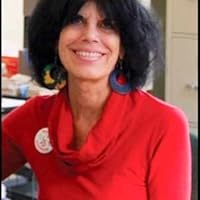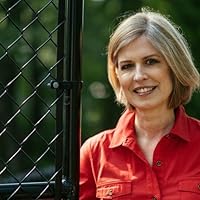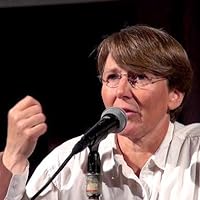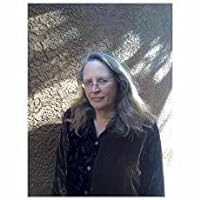Farm Animals Quotes
Quotes tagged as "farm-animals"
Showing 1-21 of 21

“Didn't people consider what could happen if armies of farm animals united in revolt?”
― Indulgence in Death
― Indulgence in Death

“The recognition that human beings are specifically and deliberately responsible for whatever aberrances farm animals may embody, that their discordances reflect our, not their, primary disruption of natural rhythms, and that we owe them more rather than less for having stripped them of their birthright and earthrights has not entered into the environmentalist discussions that I've encountered to date.”
―
―

“Villages have an unmistakable charm. There is a subtle magic found in villages. The earthiness, greenery, and fragrance of flowers, plants, fruits, and vegetables growing in the field is breathtakingly inimitable. Sitting in the lush green fields, while gazing at the wide blue sky, amidst the farm animals and the simple houses in the background, is a joie de vivre.”
―
―

“Milkers don’t spend half as long with their mothers." Eli spread his chore coat over Little Joe. "Not more than a few weeks. Sometimes one day. Maybe not even ... If you were a peeper, it’d be even worse. They don’t even get to see their mamas. They’re still jelly beans when they’re left alone to hatch.”
―
―

“Animals who are exploited for “organic” foods are raised, maintained, transported, and slaughtered just like their nonorganic” counterparts: They are debeaked, dehorned, detoed, castrated, and/or branded, and they are kept, transported, and slaughtered in the same deplorable conditions.”
― Speaking Up for Animals: An Anthology of Women's Voices
― Speaking Up for Animals: An Anthology of Women's Voices

“WINTER
Puir laboureris and busy husbandmen,
Went wet and weary in the fen;
The silly sheep and their little herd-groomis
Lurkis under lea of bankis, wodes, and broomis,
And other dantit greater bestial,
Within their stabillis sesyt into stall,
Sic as mulis, horsis, oxen and kye,
Fed tuskit boaris, and fat swine in sty,
Sustainit were by manis governance
On harvest and simmeris purveyance.”
― The Poetical Works of Gavin Douglas, Bishop of Dunkeld, with Memoir, Notes, and Glossary, Volume 1
Puir laboureris and busy husbandmen,
Went wet and weary in the fen;
The silly sheep and their little herd-groomis
Lurkis under lea of bankis, wodes, and broomis,
And other dantit greater bestial,
Within their stabillis sesyt into stall,
Sic as mulis, horsis, oxen and kye,
Fed tuskit boaris, and fat swine in sty,
Sustainit were by manis governance
On harvest and simmeris purveyance.”
― The Poetical Works of Gavin Douglas, Bishop of Dunkeld, with Memoir, Notes, and Glossary, Volume 1

“There is no other industry as cruel and oppressive as factory farming. With regard to numbers affected, extent and length of suffering, and numbers of premature deaths, no other industry can even approach factory farming. Billions of individuals are exploited from genetically engineered birth, through excruciating confinement, to conveyor belt dismemberment. Consequently, there is no industry more appropriate for social justice activists to boycott.”
― Speaking Up for Animals: An Anthology of Women's Voices
― Speaking Up for Animals: An Anthology of Women's Voices
“Every praising mouth is filled with ‘we love you’ yet the words are followed by one arm raised with a goad or a whip and another with a knife.”
Page 169”
― Lament of Hathor
Page 169”
― Lament of Hathor
“The only ingenuity I can see is Gaddis’ wherewithal in getting this brick published, printed, and hyped-up enough to win the National Book Award. Did he use coercion, bribery, blackmail perhaps? Did he have incriminating evidence on certain influential literary critics and talking heads, like pictures of them with farm animals or something?”
―
―

“She loved all the creatures of the farm. Each one, even a hen, was like a person to her, even more real than many of the real people she knew. Some were playful or bold, and some were shy. Some were gentle, and some were wicked. Some were smart, like Fido, and some were foolish, like the hens.”
― In the Land of the Big Red Apple
― In the Land of the Big Red Apple

“Most of the ingredients she cooked with came from the tiny farm immediately behind the restaurant. It was so small that the Pertinis could shout from one end of it to another, but the richness of the soil meant that it supported a wealth of vegetables, including tomatoes, zucchini, black cabbage, eggplant and several species that were unique to the region, including bitter friarielli and fragrant asfodelo. There was also a small black boar called Garibaldi, who despite his diminutive size impregnated his harem of four larger wives with extraordinary diligence; an ancient olive tree through which a couple of vines meandered; a chicken or two; and the Pertinis' pride and joy, Priscilla and Pupetta, the two water buffalo, who grazed on a patch of terraced pasture no bigger than a tennis court. The milk they produced was porcelain white, and after hours of work each day it produced just two or three mozzarelle, each one weighing around two pounds- but what mozzarelle: soft and faintly grassy, like the sweet steamy breath of the bufale themselves.
As well as mozzarella, the buffalo milk was crafted into various other specialties. Ciliègine were small cherry-shaped balls for salads, while bocconcini were droplet-shaped, for wrapping in slices of soft prosciutto ham. Trecce, tresses, were woven into plaits, served with Amalfi lemons and tender sprouting broccoli. Mozzarella affumicata was lightly smoked and brown in color, while scamorza was smoked over a smoldering layer of pecan shells until it was as dark and rich as a cup of strong espresso. When there was surplus milk they even made a hard cheese, ricotta salata di bufala, which was salted and slightly fruity, perfect for grating over roasted vegetables. But the cheese the Pertinis were best known for was their burrata, a tiny sack of the finest, freshest mozzarella, filled with thick buffalo cream and wrapped in asphodel leaves.”
― The Wedding Officer
As well as mozzarella, the buffalo milk was crafted into various other specialties. Ciliègine were small cherry-shaped balls for salads, while bocconcini were droplet-shaped, for wrapping in slices of soft prosciutto ham. Trecce, tresses, were woven into plaits, served with Amalfi lemons and tender sprouting broccoli. Mozzarella affumicata was lightly smoked and brown in color, while scamorza was smoked over a smoldering layer of pecan shells until it was as dark and rich as a cup of strong espresso. When there was surplus milk they even made a hard cheese, ricotta salata di bufala, which was salted and slightly fruity, perfect for grating over roasted vegetables. But the cheese the Pertinis were best known for was their burrata, a tiny sack of the finest, freshest mozzarella, filled with thick buffalo cream and wrapped in asphodel leaves.”
― The Wedding Officer

“There is no requirement that the cows, pigs, or hens who were exploited to create “natural” products
be treated any different from how other factory farmed animals are treated. Farmed animals who are exploited for “natural” products are not allowed to
live in natural conditions—they are not even allowed to satisfy their most basic natural behaviors.”
― Speaking Up for Animals: An Anthology of Women's Voices
be treated any different from how other factory farmed animals are treated. Farmed animals who are exploited for “natural” products are not allowed to
live in natural conditions—they are not even allowed to satisfy their most basic natural behaviors.”
― Speaking Up for Animals: An Anthology of Women's Voices

“There is no requirement that the cows, pigs, or hens who were exploited to create “natural” products be treated any different from how other factory farmed animals are treated. Farmed animals who are exploited for “natural” products are not allowed to live in natural conditions—they are not even allowed to satisfy their most basic natural behaviors.”
― Speaking Up for Animals: An Anthology of Women's Voices
― Speaking Up for Animals: An Anthology of Women's Voices

“Free range,” “cage free,” and “certified humane” labels are just as meaningless for farmed animals as are “all natural” labels. Just like farmed animals enslaved by organic industries, farmed animals exploited by “free range,” “cage free,” and “certified humane” producers are routinely debeaked, disbudded, detoed, castrated, their tails are docked, and/or they are branded (depending on the species). Neither do “free range” and “certified humane” labels protect cows from perpetual impregnation, pregnancy, birth, calfsnatching, transport, or dismemberment (slaughter) at a very young age. Finally, “free range,” “cage free,” and “certified humane” labels fail to help “spent” hens, who are sent to slaughter at the same youthful age.”
― Speaking Up for Animals: An Anthology of Women's Voices
― Speaking Up for Animals: An Anthology of Women's Voices

“The Wilders, of course, paid no attention to her exuberance, continuing to live a frugal existence among their pigs and hens, entertained by a self-re-newing circle of farm cats and their preternaturally gifted Airedale terrier, Nero, who would sit politely at the dinner table like a member of the family, eating off his own plate.”
― Prairie Fires: The American Dreams of Laura Ingalls Wilder
― Prairie Fires: The American Dreams of Laura Ingalls Wilder

“What is oinkiness?" asked Cardinal Bird
Oh, don't you know? You haven't heard?
said The Owl who was kind and wise,
When you meet The Moon Pig
you'll be surprised ...
Luna has oinkiness
and has it lots!
You've either got it
or you have not!”
―
Oh, don't you know? You haven't heard?
said The Owl who was kind and wise,
When you meet The Moon Pig
you'll be surprised ...
Luna has oinkiness
and has it lots!
You've either got it
or you have not!”
―

“Violeta put her head down in her humble way. "I'm certainly able to bray loudly, Bart, dear. But that would attract a lot of attention. I don't like to do that because it is not always a good thing. Besides, braying loudly wastes energy. I don't want to do that unless it's for something very important."
Bart thought that made a lot of sense. The silly goats were always making noises over the littlest things. "Oh, we're being let out now? Buh-uh-uh! Oh, there's a butterfly! Buh-uh-uh!" The lambs and the ewes were only slightly better.
You're right, Violeta. From now on I'm not going to make noise without a good reason, either," said Bart.”
― A Bellwether Christmas
Bart thought that made a lot of sense. The silly goats were always making noises over the littlest things. "Oh, we're being let out now? Buh-uh-uh! Oh, there's a butterfly! Buh-uh-uh!" The lambs and the ewes were only slightly better.
You're right, Violeta. From now on I'm not going to make noise without a good reason, either," said Bart.”
― A Bellwether Christmas
All Quotes
|
My Quotes
|
Add A Quote
Browse By Tag
- Love Quotes 99k
- Life Quotes 78k
- Inspirational Quotes 74.5k
- Humor Quotes 43.5k
- Philosophy Quotes 30.5k
- Inspirational Quotes Quotes 28k
- God Quotes 26.5k
- Truth Quotes 24k
- Wisdom Quotes 24k
- Romance Quotes 23.5k
- Poetry Quotes 22.5k
- Life Lessons Quotes 21.5k
- Death Quotes 20k
- Quotes Quotes 19.5k
- Happiness Quotes 19k
- Hope Quotes 18k
- Faith Quotes 18k
- Inspiration Quotes 17k
- Spirituality Quotes 15.5k
- Motivational Quotes 15k
- Religion Quotes 15k
- Relationships Quotes 15k
- Life Quotes Quotes 15k
- Writing Quotes 14.5k
- Love Quotes Quotes 14.5k
- Success Quotes 13.5k
- Motivation Quotes 13k
- Time Quotes 12.5k
- Science Quotes 12k
- Motivational Quotes Quotes 11.5k



